
Lisa Grossman is the astronomy writer for Science News. Previously she was a news editor at New Scientist, where she ran the physical sciences section of the magazine for three years. Before that, she spent three years at New Scientist as a reporter, covering space, physics and astronomy. She has a degree in astronomy from Cornell University and a graduate certificate in science writing from UC Santa Cruz. Lisa was a finalist for the AGU David Perlman Award for Excellence in Science Journalism, and received the Institute of Physics/Science and Technology Facilities Council physics writing award and the AAS Solar Physics Division Popular Writing Award. She interned at Science News in 2009-2010.

Trustworthy journalism comes at a price.
Scientists and journalists share a core belief in questioning, observing and verifying to reach the truth. Science News reports on crucial research and discovery across science disciplines. We need your financial support to make it happen – every contribution makes a difference.
All Stories by Lisa Grossman
-
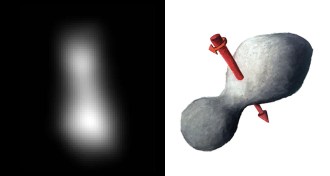 Planetary Science
Planetary ScienceLive updates: New Horizons’ flyby of a distant Kuiper Belt object
The New Horizons spacecraft is ready for the most distant close flyby of a rocky object in the solar system, a rocky body called MU69 or Ultima Thule.
-
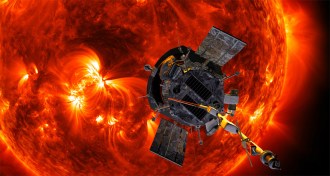 Astronomy
Astronomy2018 was a busy year in space
This year, some missions started exploring the cosmos, while others were winding down.
-
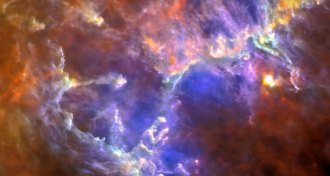 Space
SpaceThe sugar that makes up DNA could be made in space
Deoxyribose, the sugar of DNA, was created in a lab simulating ice in space.
-
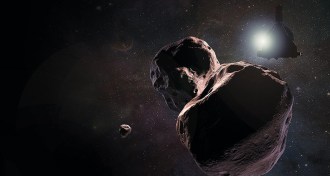 Planetary Science
Planetary ScienceNew Horizons gears up for its close encounter with Ultima Thule
On January 1, the New Horizons spacecraft will fly by Ultima Thule, the first small Kuiper Belt object ever to get a close visitor.
-
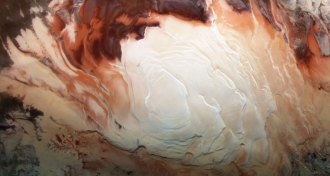 Planetary Science
Planetary ScienceA buried lake on Mars excited and baffled scientists
Planetary scientists are still trying to explain how a lake could have formed beneath a kilometer and a half of Martian ice.
-
 Astronomy
AstronomyThe Parker Solar Probe takes its first up-close look at the sun
NASA’s Parker Solar Probe survived its first encounter with the sun and is sending data back to Earth.
-
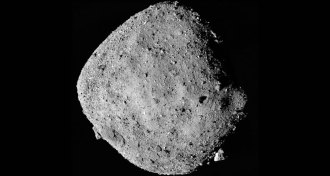 Planetary Science
Planetary ScienceNASA’s OSIRIS-REx finds signs of water on the asteroid Bennu
NASA’s OSIRIS-REx spacecraft found signs of water and lots of boulders on the asteroid Bennu.
-
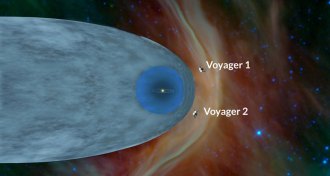 Cosmology
CosmologyVoyager 2 spacecraft enters interstellar space
Voyager 2 just became the second probe ever to enter interstellar space, and the first with a working plasma instrument.
-
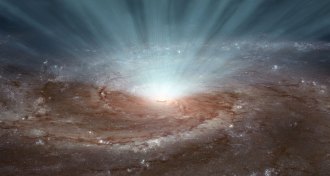 Astronomy
AstronomyAstronomers find far-flung wind from a black hole in the universe’s first light
The detection of black hole winds far from their host galaxy could reveal details of how galaxies and black holes grow up together.
-
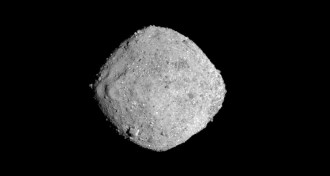 Planetary Science
Planetary ScienceNASA’s OSIRIS-REx spacecraft has finally arrived at asteroid Bennu
Planetary scientists hope the probe will reveal if such carbon-rich asteroids helped kick-start life on Earth.
-
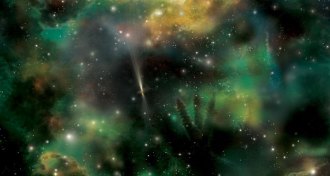 Astronomy
AstronomyAstronomers have measured all the starlight ever emitted
Astronomers used distant blazars to tally up all the stray photons roaming through space.
-
 Planetary Science
Planetary ScienceNASA’s InSight lander has touched down safely on Mars
NASA’s InSight lander just touched down on Mars for a years-long study of the Red Planet’s insides.